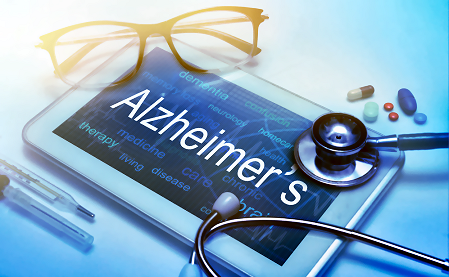Alzheimer’s disease is the most common form of dementia, accounting for 60% to 80% of cases. It gradually destroys memory, reasoning, and other cognitive abilities, ultimately interfering with daily life. Named after the German psychiatrist Alois Alzheimer, the condition has become one of the most pressing global health challenges. This article explores the history of Alzheimer’s, its global impact, the science behind it, and promising lifestyle interventions including brain exercises and meditation.
The History Behind Alzheimer’s Disease
The disease is named after Dr. Alois Alzheimer, who in 1906 presented a case of a 51-year-old woman, Auguste Deter, with profound memory loss and behavioral changes. After her death, he examined her brain and found abnormal clumps (amyloid plaques) and tangled bundles of fibers (neurofibrillary tangles). His work laid the foundation for what we now recognize as Alzheimer’s disease.
Alzheimer’s by the Numbers: A Global Challenge
Alzheimer’s disease affects millions worldwide. According to the World Health Organization (WHO), over 55 million people live with dementia globally, and Alzheimer's accounts for the majority. This number is expected to rise to 78 million by 2030 and 139 million by 2050, driven largely by aging populations.
- United States: Over 6 million Americans are currently living with Alzheimer’s.
- Cost: In the U.S. alone, Alzheimer’s and other dementias cost an estimated $345 billion in 2023.
- Mortality: Alzheimer’s is the sixth leading cause of death in the U.S.
Given the aging demographics globally, Alzheimer’s poses a major public health and economic burden.
Causes and Risk Factors
While the exact causes of Alzheimer’s remain elusive, a combination of genetic, lifestyle, and environmental factors are believed to contribute. Key risk factors include:
- Age: Risk increases significantly after age 65.
- Genetics: The presence of the APOE ε4 gene is a known risk factor.
- Family History: Individuals with a parent or sibling with Alzheimer’s are more likely to develop the disease.
- Cardiovascular Health: Hypertension, obesity, and diabetes elevate risk.
- Education and Cognitive Engagement: Lower education levels may increase vulnerability.
Can Brain Exercises and Meditation Prevent Alzheimer’s?
Though no method guarantees prevention, increasing evidence supports the role of mental and emotional well-being in lowering Alzheimer's risk. Studies show that engaging the brain and managing stress can support cognitive resilience.
Brain Exercises
Activities like puzzles, reading, learning new skills, and games such as chess or Sudoku are known to stimulate the brain. The ACTIVE trial (Advanced Cognitive Training for Independent and Vital Elderly), funded by the National Institute on Aging, found that cognitive training improved memory and reasoning in older adults even a decade after the intervention.
Meditation and Mindfulness
Mindfulness practices have also been shown to positively impact brain health. A study published in Journal of Alzheimer's Disease (2016) by Dr. Rebecca Erwin Wells and colleagues found that an eight-week mindfulness meditation program improved functional connectivity in the brain and reduced stress in adults with mild cognitive impairment (MCI).
Meditation may also reduce cortisol levels (a stress hormone), which is linked to hippocampal shrinkage—a hallmark of Alzheimer’s progression.
Prevention and Lifestyle Strategies
Besides cognitive engagement, several lifestyle habits are associated with lower Alzheimer’s risk:
- Regular Exercise: Physical activity improves blood flow and may directly benefit brain cells.
- Healthy Diet: Diets like the Mediterranean and DASH diets are linked to reduced risk.
- Sleep: Deep sleep is essential for memory consolidation and clearing brain toxins.
- Social Interaction: Socially active individuals are less likely to experience cognitive decline.
Public Awareness: Why It Matters
Public knowledge and education about Alzheimer’s are essential for early diagnosis and support. Awareness campaigns encourage earlier detection, reduce stigma, and promote funding for research. Moreover, informed communities are more equipped to care for individuals with Alzheimer’s and advocate for needed services.
Alzheimer’s disease is not just a medical challenge, but a societal one. Its historical origins trace back over a century, yet the growing burden is more relevant than ever. While a cure remains elusive, awareness, early intervention, and lifestyle modifications may delay onset or mitigate symptoms. In the coming decades, addressing Alzheimer’s will require a combination of scientific innovation, public policy, and empowered individuals.




Post a Comment
Post a Comment